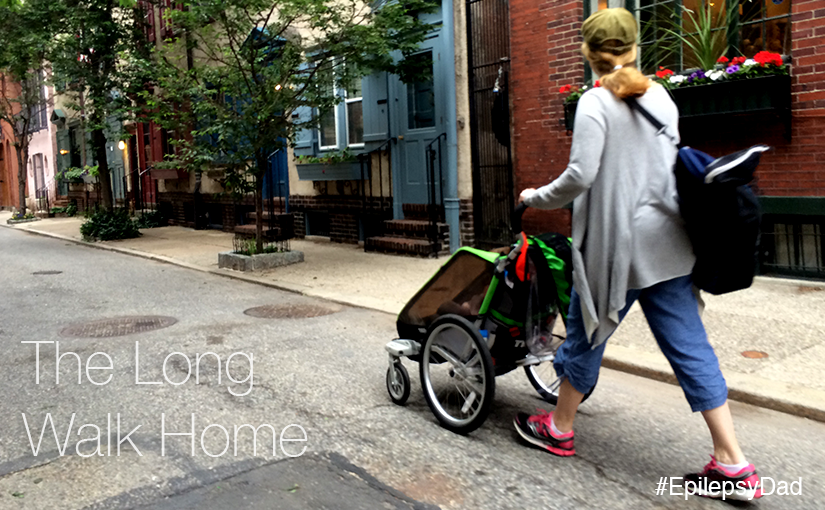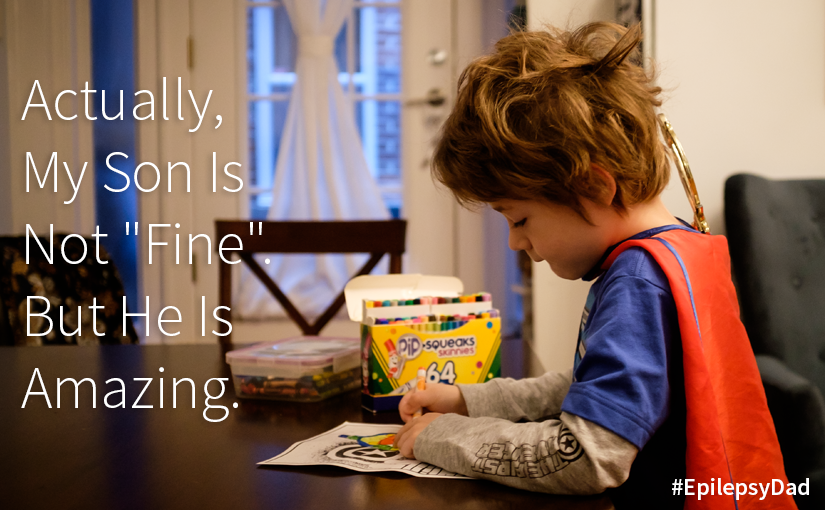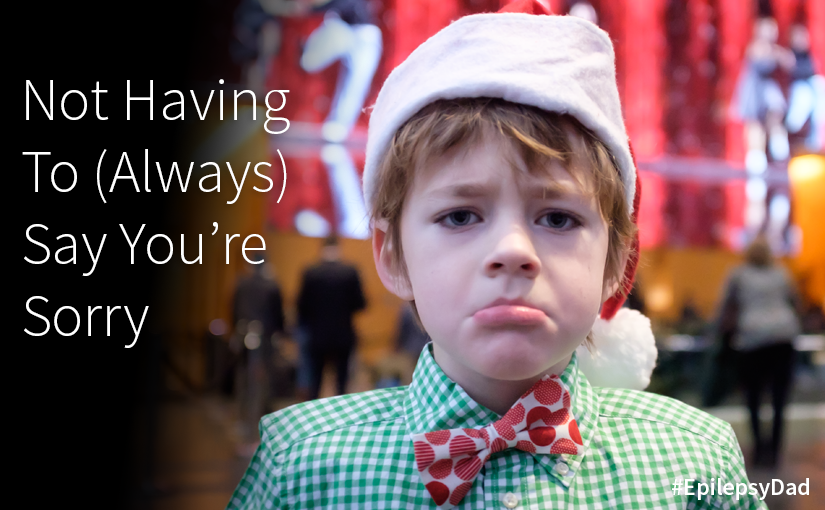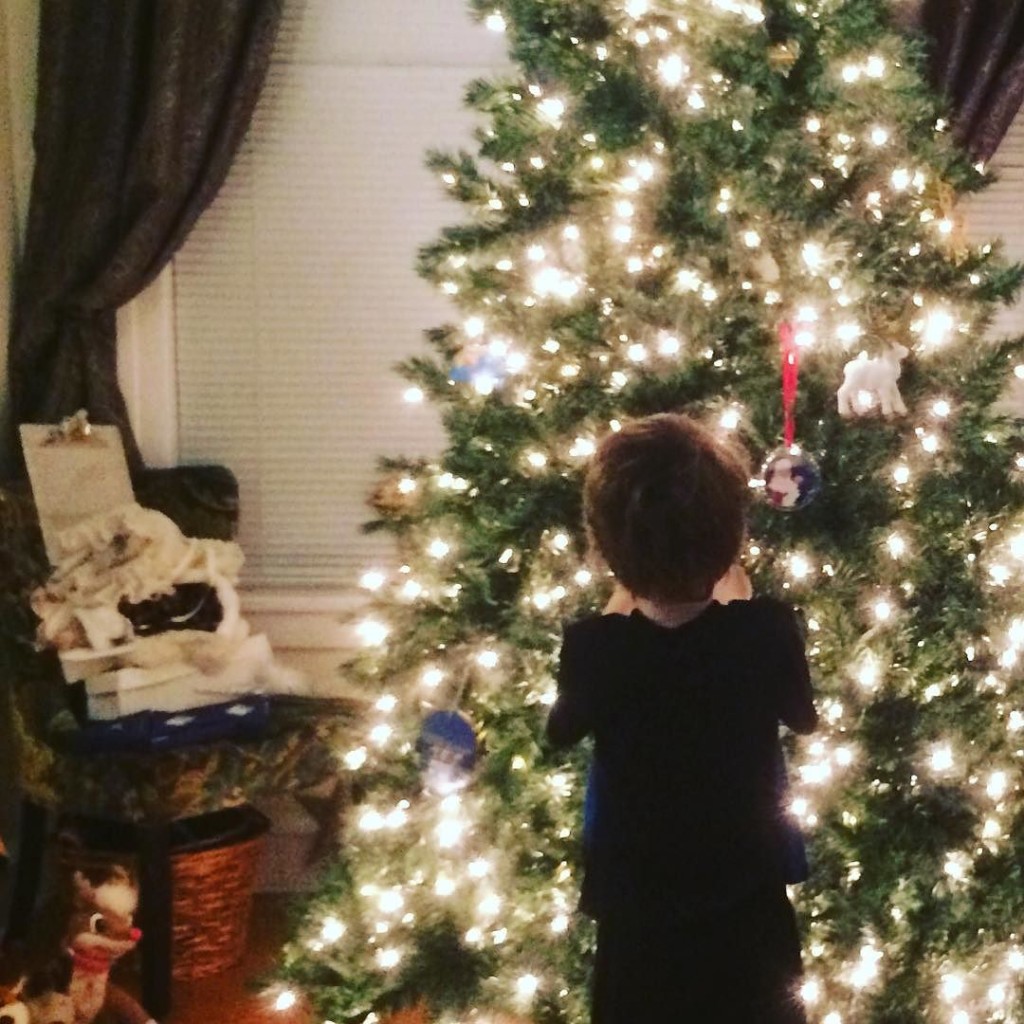It was one of those nights when we had to decide between bringing him to his teeball practice or letting him skip it and rest. During the previous week, we had just gotten him back up to a functional dose of his medicine that once again helped stop his daytime seizures. But, after almost of week without them, the nighttime seizures returned. That day, he was spacey, and just “off”, which brought us to having to make this choice. Should we let him go play and do something that he hasn’t stopped talking about the entire week and risk him getting exhausted and more likely to have a seizure? Or should we keep him home, let him rest, and miss out on yet another activity?
Some nights, the decision is easier. If he had a day of seizures, or if his behavior was off, or if he had those big, puffy, purple circles under his eyes, he would stay home. Or, if he had a great day, and a great nap, it would be an easy choice to head to the field.
But on the in between nights, it’s hard to know what to do or what the repercussions might be. It’s like picking the mystery box in a game show. He could pep up and participate or he could lose complete focus and throw baseballs over the fence or somersault across the field. We decided to open the mystery box and take our chances.
With being tired and being surrounded by a gaggle of excited peers, there were a few moments where we had to remind him to stay focused, but overall he did great. Until, that is, towards the end of practice where he had a great hit but was tagged out. He insisted that he was safe, but he was not (by a mile), and what should have been a short discussion turned in to a battle and a long walk home.
He cried the entire way. There was no reasoning, and no real comforting. He was tired, and done, and he just wanted to cry. So we let him. My wife pushed the stroller and I carried the teeball bag on my back. We would occasionally tell him that we loved him, and that we were sorry he was so sad, but we mostly let him cry, his head tucked in his hands or his baseball hat, as the tears rolled down his face.
When we got home, sniffling, he pulled himself out of the stroller, walked up the steps in to the house, and fell on the couch, crying as I helped him take off his shoes and jersey. I again reassured him, rubbing his head and kissing his forehead. As I started to stand, he calmed down and asked me to sit next to him, which I did.
We are not strangers to these long walks home. Last year, they were angrier, with hitting, and spitting, and mean, angry words coming from a crying five-year old. There were days where he would stick his feet in the wheels and laugh, or jump out of the stroller and try to run away. There were attempted trips to the museum or the park that would end before they began with us turning around after only a block or two from our home. It’s hard when the threat of a thunderstorm looms over every outing and every activity. But better the risk of a long walk home after doing something than never leaving the house.



